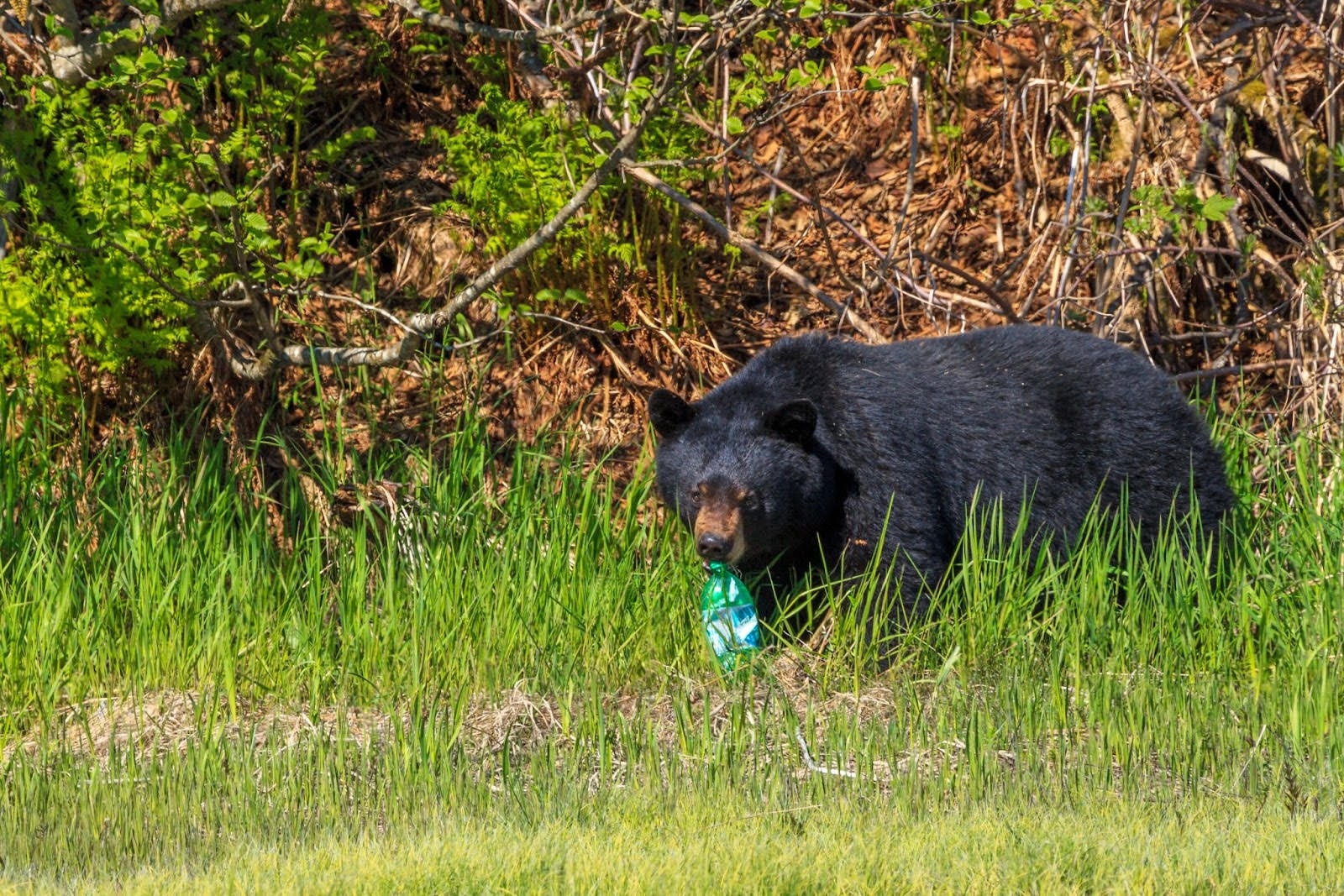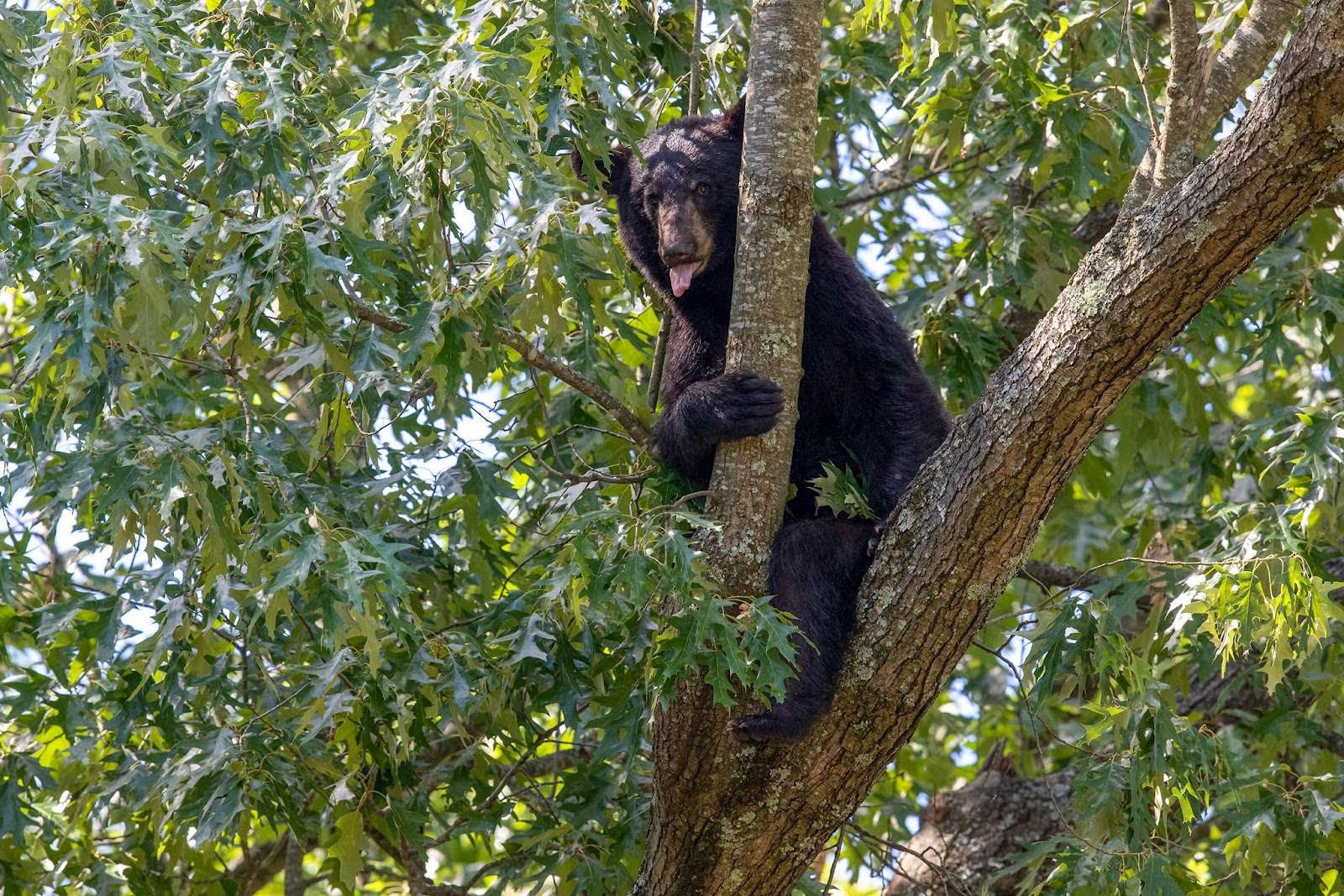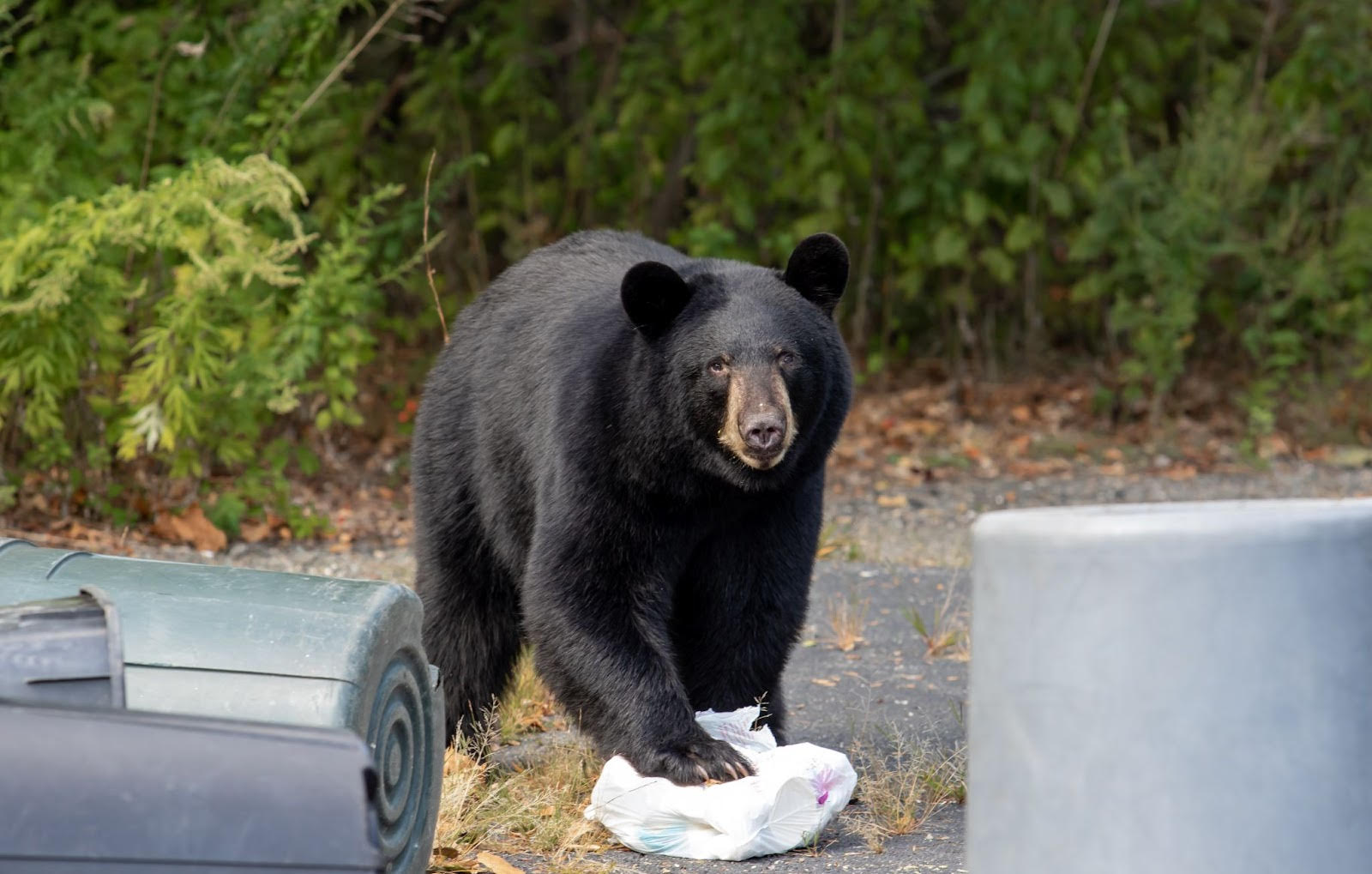Summer Travels Can Land Bears in Hot Water
ON 06-11-2024

LITTLE ROCK — As if on cue, a bear sighting near Rock Creek Monday morning reminded everyone that Arkansas is home to the most successful reintroductions of a large carnivore in history. The Natural State’s bear population is definitely a source of pride for many wildlife enthusiasts here in Arkansas, but it also means the occasional male bear wanders too close to town when on the search for new territory each May and June. Unfortunately, a young bear has a hard time telling the difference between a blackberry thicket and corn feeder or trash can when it comes to finding calorie-rich treats.
“Most of the calls we get about bears getting too close to towns and cities come during a few months in summer and they’re almost always young males,” Myron Means, large carnivore program coordinator for the Arkansas Game and Fish Commission, said. “They’ve overwintered with their mother twice and now it’s time for them to find new homes.”

According to Means, yearling bears have two life paths after they emerge from dens in spring, based on their sex. Female yearlings will be allowed to stay near their mother, setting up territories adjacent to hers. Males, however, are shown the door and are pushed away to find new homes.
“This prevents inbreeding and promotes expansion of the species,” Means said. “For some of these young males, it’s the first time they will encounter people.”
According to the website Bearwise.org, a site maintained and managed by bear biologists and the Association of Fish and Wildlife Agencies, these young bears are much like teenagers striking out on their own for the first time. Most quickly discover that human places should be avoided, but if they find out that your trash bins or wildlife feeders are easy pickings for a snack, they’re liable to set up shop and claim your backyard as their own.
“Probably 90 percent of the bear nuisance calls we get can be handled by simply taking away whatever food source the bear has found,” Means said. “That’s going to be the first thing I tell a landowner when they call. Take away that easy food, and the bear almost always moves on quickly.”
Corn feeders and easily tipped trash cans are obvious targets for inquisitive bears, but other food sources, such as birdfeeders and barbecue grills with uncleaned drip pans also attract these trouble bruins. A full checklist is available at Bearwise.org to help landowners in Arkansas’s bear country prepare for the possibilities.
The few female bears that spur nuisance complaints often are searching for food to keep their weight on while tending to their cubs. Early summer foods like leaves and grasses are not as calorie-rich as berries and acorns that are soon to be abundant in most of the state. During this time, a female may also wander in for a free meal if food is left out for the taking.

“Bears are opportunists, but they’re really not aggressive unless you’ve let them stick around and get comfortable,” Means said. “If you did miss something and they begin to hang around. Remove the food and make sure the bear knows they aren’t welcome in your backyard. It usually doesn’t take much to get them to move on if you do it when they first show up. Most of the times we’ve had to trap and remove bears have been the result of people thinking it was neat to have one around and letting them stay long enough to think they belonged there. That always leads to trouble down the road, not only for the landowner who let a bear stay, but for neighbors and other landowners who then have to deal with a bear that’s lost its fear of humans.”
In addition to being a bad idea, intentionally baiting or feeding bears to attract them to an area is illegal. The only exception to this is from 30 days before bear hunting season begins until it ends. Placing certain wildlife feeders on your property also is illegal if you live in an area at risk for Chronic Wasting Disease, a disease found in deer and elk.
More information about bear awareness and bear safety can be found on the cooperative website www.Bearwise.org.
####
CUTLINES:
SODA BEAR
Each May and June, calls begin to pick up concerning bears that have found their way into cities and towns in Arkansas. Bigstock photo.
BEAR IN TREE
Black bears rarely pose any threat to humans, and often shy away from populations when possible. AGFC photo.
BEAR IN TRASH
Leaving trash cans open and full of scraps or other food can be a surefire way to attract bears on the borders of urban populations and bear country. Bigstock photo.
Recent News

AGFC Commissioner Meeting Notice
Jul. 15, 2025

Arkansas Wildlife Weekly Fishing Report
Jul. 10, 2025
Subscribe to Our Weekly Newsletter E-mails
Don’t miss another issue. Sign up now to receive the AGFC Wildlife Weekly Newsletter in your mailbox every Wednesday afternoon (Waterfowl Reports are published weekly during waterfowl season and periodically outside the season). Fishing Reports arrive on Thursdays. Fill in the following fields and hit submit. Thanks, and welcome!
